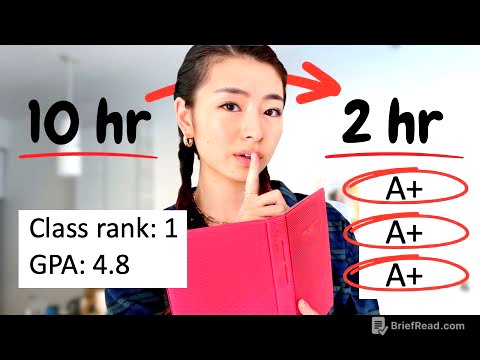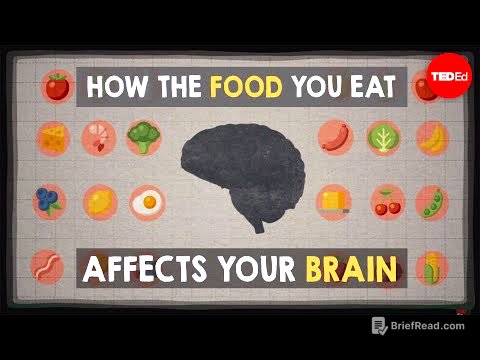TLDR;
This podcast episode is a retrospective on the first 46 episodes of the classic Sailor Moon anime. The hosts and guest discuss their personal histories with the series, favorite characters like Usagi and Ami, and the complexities of relationships such as Rei and Mamoru, and Zoisite and Kunzite. They also touch on the show's strengths, awkward moments, and the emotional impact of the ending.
- Personal experiences with Sailor Moon vary, from early morning reruns to later discoveries as adults.
- Usagi's character is appreciated more as an adult for her imperfections and growth.
- The series balances humor with serious themes, making it enjoyable for both kids and adults.
- The ending of the first season is emotionally intense, despite the subsequent reset.
Intros [0:00]
Bry Kaiser introduces the podcast "Chatty AF" and the first in a series of retrospectives on Sailor Moon. Bry is an editor and contributor at Anime Feminist and can be found on Twitter at @writervry and @trashpod. Anne Lee, creator of shojopower.com and contributor to Anime Feminist, also introduces herself.
Sailor Moon’s history [1:25]
The Sailor Moon manga began in 1991 and ran until 1997, with the anime running parallel from 1992 to 1997. This podcast episode focuses on the first 46 episodes of the classic Sailor Moon anime, directed by Junichi Sato, who later directed Princess Tutu and is currently the series director for Hugtto! Precure. Ikuhara, famously associated with the anime, joined as a co-series director during R and directed some episodes.
Past experiences with Sailor Moon [3:18]
Anne got into Sailor Moon when it started airing in America in 1995, drawn to Sailor Mercury's character. Bry remembers watching reruns and being captivated by the Black Lady episodes. Ryan's experience was different, initially put off by the edited dubs and later watching the uncut version as an adult, leading to a blog project and meeting Bry.
Identifying with Usagi [9:54]
Ryan admits that as a kid, she would have hated Usagi for not being a "badass" heroine. As an adult, she has more sympathy for Usagi, understanding that she's a 14-year-old doing her best in a difficult situation. Anne liked Usagi's imperfections because she related to the character's struggles with meeting expectations. Bry also expresses a retroactive need to apologize to Usagi, having previously dismissed her for liking feminine things.
Ami’s self-doubt [13:39]
Ryan states that she would have liked Ami and Makoto as a kid, and Ami is still her favorite. She appreciates Ami's intelligence and empathy, as well as her struggles with self-confidence. The diverse personalities of the Sailor Guardians show that there is more than one way to be a heroine. The friendship stories are heartwarming, emphasizing support and understanding among the girls.
Rei’s romantic arc [16:04]
Anne notes that she hated Rei dating Mamoru when she was younger. Watching it again, she realized that no one knew Rei liked Mamoru, and Makoto was the only one who picked up on it. This storyline shows the characters supporting one another, with Rei coming to terms with Mamoru and Usagi's destiny. Ryan adds that the first season builds well, especially around the time Zoisite becomes the main villain.
Mamoru, age-gap, and role-reversal [18:25]
Ryan expresses dislike for Mamoru, finding him bland and sometimes creepy. Tuxedo Mask, on the other hand, is loved for his over-the-top persona and comedic relief. The creators didn't take Mamoru seriously, focusing more on the female characters. Anne appreciates the gender role reversal, where Mamoru is often kidnapped and needs saving. The age gap between Mamoru and Usagi is acknowledged as problematic, with Mamoru being a college student while Usagi is 14.
Naru and Nephrite [25:35]
Ryan admits to being emotionally caught up in the Naru and Nephrite story as a child. She had forgotten how upset she was at the end of that arc, not because they were a good couple, but because she sympathized with Naru's crush on someone she shouldn't. Anne feels that Naru's story works because it's about her emotional response, not Nephrite.
Zoisite and Kunzite [27:22]
Anne states that Zoisite is the best villain. Zoisite was censored in the original 90s dub, but he is a character that Ryan adores, who is selfish, petulant, and evil, but also pathetic. Ryan enjoys that the most humanizing characteristic for Zoisite and Kunzite is their love for each other. This is in contrast to the time where gay-coded characters were spookier or scarier. Kunzite's motivation for the second half of the series is revenge for Zoisite's death.
Manga/anime differences [34:46]
Ryan prefers the 90s anime to the manga and other versions. The anime bypasses the brainwashed element of the villains and implies that they were always evil. The Revelation that they were Endymion's generals came pretty late in the game, so maybe they just didn't want to tackle that part by that time. Anne appreciates that the 90s anime ignored the point that the four generals were perfectly paired up with the Sailor Guardians.
7 Monsters [37:50]
Ryan states that the seven monsters arc is when Sailor Moon really finds its stride. This is the first time we see people getting turned into monsters because of their own insecurities or issues. The scouts don't just kill the monsters, they make people better. This provides more Nuance to the show and leans into the idea that Usagi's greatest strength is her compassion and empathy.
Ami and Ryo [41:43]
Ryan says that with Usagi, there is the idea of a kid realizing there's a world bigger than just them and figuring out how to take responsibility for their actions. With Ami and her episodes with Ryo, there is the opposite of that, which is the idea of becoming aware of others and then overcorrecting.
Awkward moments [44:48]
The hosts touch on some of the awkward moments that haven't aged well, such as the wedding episodes and the episode where the girls decide they need to lose weight for their boyfriends. Ryan says that the fourth episode is the one where they all decide they need to lose weight for their boyfriends.
Strengths [47:48]
Ryan was impressed at how well the show held up, with solid animation, story arcs, and characters. She got into some of the romances, although Sailor Moon does friendship stories better. She is bummed that when they start a new season, they kind of hit a reboot. Anne says that the first season of Sailor Moon really leans into action comedy.
The ending [52:37]
Ryan says that the ending of this season is a lot, and if this had just been a standalone series, it would have been a good ending. As one that leads into other Seasons, it bums her out because it hits that reset button. Anne says that the scouts just start heroically dying. Ryan says that the last four episodes are incredibly brutal emotionally.
Rhett Butler [59:38]
The hosts discuss the Rhett Butler episode, noting how good it is and how it has a wacky Saturday morning cartoon feel. Ryan says that Rhett is the only monster that they turn him into a monster like attack the scouts and he's like nah nah I'm the captain he ends up helping them out because he loves Luna so much.
Outro [1:02:43]
Ryan says that she wouldn't say this is sailor moon at its very very best, but she does think the second half of it is up there and provides kind of hints and glimmers of of where the show is going to go and what it's going to be. The hosts thank the listeners and provide information on where to find more episodes and support the podcast.









